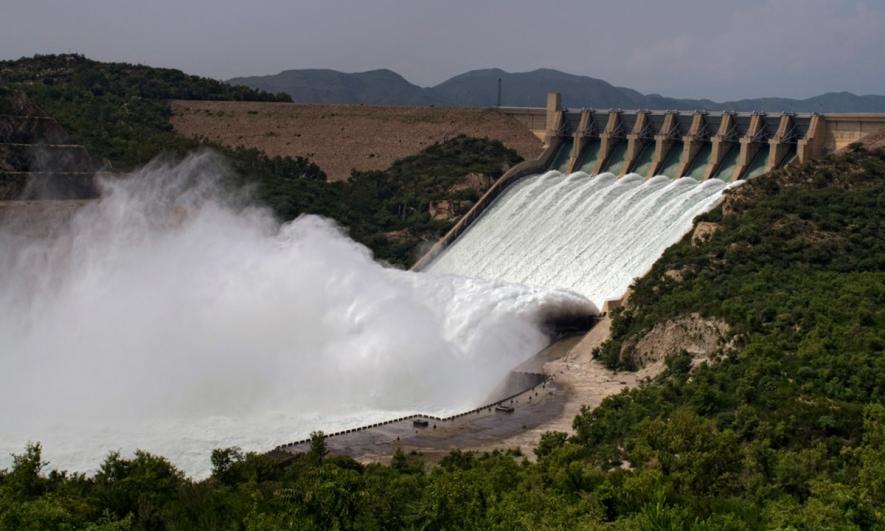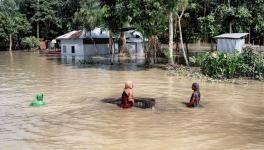The Fuss Over the Indus Waters Treaty

Image Coutesy: Herald
The Indus Waters Treaty was signed almost 58 years ago, on September 19, 1960, by the then Prime Minister of India, Jawaharlal Nehru and the then President of Pakistan, Ayub Khan. Though the treaty, brokered by the World Bank, has come under question in the past, it has withstood three wars and the problematic diplomatic relations between the countries, without becoming a flashpoint.
The treaty partitioned the six main rivers in the Indus system into two sections of western and eastern rivers. Control over the waters flowing in the three western rivers - Indus, Chenab and Jhelum, was apportioned to Pakistan, whereas, for the three eastern rivers - Sutlej, Ravi and Beas, the control was given to India. Thus, rather than being a river sharing treaty, the Indus Waters Treaty arrived at a solution by partitioning the rivers.
The treaty also set up the Permanent Indus Commission, a bilateral commission, which was created to enable cooperation and exchange of data between the two countries.
In the past, the issue of sharing of the waters of the Indus river system had been kept away from politicisation. They were dealt with by using technical and legal expertise and through the framework provided by the treaty. Thus, the treaty has been seen as a distinctive success, in the relationship between both the countries, in particular and in terms of river sharing agreements, in general.
An example of this is the dispute over the Baglihar project, where Pakistan had approached the World Bank with its concerns. The World Bank, in turn, appointed an independent technical expert who submitted a verdict, in 2007, on the differences that had risen between Pakistan and India. The two countries then were able to resolve the whole issue in 2010, by holding further meetings and discussions through their Permanent Indus Commissioners.
Why is the treaty now an issue?
In a statement made on March 26, the Union Minister for Water Resources and Transport, Nitin Gadkari, said that the central government had decided to stop the flow of India’s due share of the waters into Pakistan and that this would be achieved through the construction of three dams in Uttarakhand. Speaking about the waters he said, “It will be taken to other states also.” Further, he added, “During the Partition, India got three rivers, but we could not utilise our share of the waters which kept flowing back to Pakistan.”
The first thing to be noted, in this statement, is the error in claiming that the government would stop the flow by building dams in Uttarakhand. This is because neither do any of the three eastern rivers pass through Uttarakhand and nor do they have any significant drainage from Uttarakhand.
However, even if the central government has other, more realistic, plans to impound and divert the water from the three eastern rivers, the issue is quite sensitive. Although India does have exclusive rights over using these waters, as set out by the treaty, the fact is that these rivers, too, pass into Pakistan. Thus, any unilateral move could become another flashpoint in the relations between the country.
The more recent issue, that has cropped up, is over the Kishanganga Dam, in Jammu and Kashmir (J&K) close to the Line of Control (LOC), the construction for which began in 2009. This project was recently commissioned by Indian Prime Minister, Narendra Modi.
Pakistan has expressed concern over this dam as it is on the Indus system, on which 80 percent of Pakistan’s agriculture depends, and claims it violates the treaty. The foreign ministry, in a statement, said, “Pakistan is seriously concerned about the inauguration (of the Kishanganga plant)[......]Pakistan believes that the inauguration of the project without the resolution of the dispute is tantamount to violation of the Indus Waters Treaty (IWT)."
Pakistan had approached the world bank over this issue, however on May 23, the World Bank stated “While an agreement on the way forward was not reached at the conclusion of the meetings, the World Bank will continue to work with both the countries to resolve the issues in an amicable manner and in line with the treaty provisions,” stated the World Bank.
Thus the issue is still not resolved and it appears that further discussions between the countries and also the World Bank will be necessary. At this point, the fresh politicisation of the issue could be detrimental to the interests of both sides, as such a politicisation may subvert the legal and technical processes of negotiation and instead take the issue to the public arena.
India should know very well what happens when the issue of sharing river water is politicised, all thanks to the ongoing Kaveri River water dispute between Karnataka and Tamil Nadu. The dispute has its origins way back in the colonial period and it is only now that a solution has been found, with the Supreme Court approving the Centre’s draft proposal on sharing of the Kaveri waters.
India has also witnessed other domestic disputes over the sharing of river waters such as over the Narmada, the Godavari and the Krishna, among others.
During the long dispute over the Kaveri, there have been many instances of rioting and loss of life and property. The politicisation of the issue has also brought about an environment where there is some level of distrust and hate between the peoples of the states of Karnataka and Tamil Nadu, particularly those depending upon the Kaveri.
The irony here is very clear. India has had a stable system for sharing river water with Pakistan, with whom it has fought three wars and whom it accuses of exporting terrorism, whereas at the same time, it has had a bitter dispute going on between its own states.
The impact of politicisation of the issue on both sides of the border could lead to a grievous situation. Both nations have large armed forces, but more pertinently both are nuclear-powered states. Although the last war, at Kargil, between the nations was at a time when both had established themselves as nuclear states, it was a localised conflict. What might happen if there is a full-blown war between the two nations is too terrible to speculate.
At this juncture, this is of particular concern as the present government and the ruling party, the Bharatiya Janata Party, has built up a militant rhetoric when it comes to dealing with Pakistan. Be it the politicisation of the “surgical strikes” or the talk of upping the ante when it comes to cross-border firing. This only adds further fuel to the fire of frenzy over confrontation and war.
Stirring the hornet’s nest?
India’s position of power, with regards to Pakistan, in the issue of the sharing of Indus waters, is based on its position as the upper riparian state. But, using this as the rationale for behaving in a unilateral manner, rather than attempting to build a consensus, can become a dangerous move for India.
When it comes to its other neighbours such as Nepal, Bhutan and China, India is the lower riparian state. Behaving in a unilateral manner with Pakistan on the issue of water sharing may encourage these other nations to also throw their weight on account of being the upper riparian states.
With regards to both Nepal and Bhutan, India has been able to use its dominant political position to go beyond the natural disadvantage of being the lower riparian state. This was enabled by the fact that both nations, for long, did not possess strong democratic institutions.
Nepal had, until 2006, a mixture of monarchy and democracy, with varying periods during which the monarchy held almost total power. India had used this to its advantage to gain a dominant position in relations, including the water sharing relations.
Bhutan was an absolute monarchy, till 2008, when it finally got a constitution and held parliamentary elections.
Now both nations have democratic systems and Nepal, in particular, has begun taking a strong stand when it comes to relations with India.
The other neighbour, China, has never been submissive to India’s will and has always held a position of strength, thanks to its military and economic dominance. There have already been disputes over China’s dam building on the Yarlung Tsangpo, the upper stream of the Brahmaputra in Tibet.
India’s unilateral moves with regard to water sharing with Pakistan, on the accord of being the upper riparian state, may encourage the other neighbours to behave in a similar manner with India. Thus it would appear sensible to proceed in a manner such as to build consensus so that India avoids stirring the hornet’s nest when it comes to riparian relations.
What could be done
Rather than talking of abrogating the Indus Waters Treaty, as they had in the past, or politicise the issue of water sharing, PM Modi and his government should try and adhere to the treaty. Keeping aside the politicisation and allowing the treaty - its legal and technical framework- to operate without hindrance, seems to be the path that would be most beneficial to the nations by ensuring peace and stability.
Instead of making potentially problematic and political statements and also threatening to make unilateral moves, it would appear more prudent to proceed with caution and through negotiations with the neighbouring country.
Further, it would be wise for India to learn from the treaty and use this knowledge to bring about resolutions for domestic disputes over sharing river water. After all, the Indus Waters Treaty has successfully kept two nations, who are constantly discontent with each other, from confronting each other over the issue of river water sharing.
Get the latest reports & analysis with people's perspective on Protests, movements & deep analytical videos, discussions of the current affairs in your Telegram app. Subscribe to NewsClick's Telegram channel & get Real-Time updates on stories, as they get published on our website.























